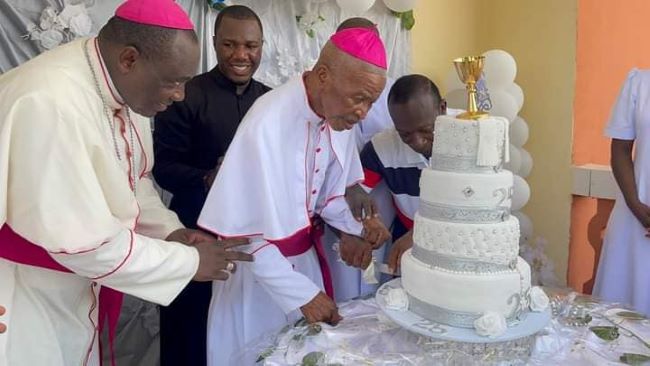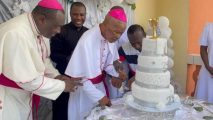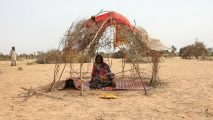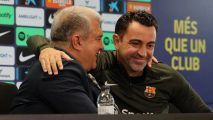Categories
Archives
- April 2024
- March 2024
- February 2024
- January 2024
- December 2023
- November 2023
- October 2023
- September 2023
- August 2023
- July 2023
- June 2023
- May 2023
- April 2023
- March 2023
- February 2023
- January 2023
- December 2022
- November 2022
- October 2022
- September 2022
- August 2022
- July 2022
- June 2022
- May 2022
- April 2022
- March 2022
- February 2022
- January 2022
- December 2021
- November 2021
- October 2021
- September 2021
- August 2021
- July 2021
- June 2021
- May 2021
- April 2021
- March 2021
- February 2021
- January 2021
- December 2020
- November 2020
- October 2020
- September 2020
- August 2020
- July 2020
- June 2020
- May 2020
- April 2020
- March 2020
- February 2020
- January 2020
- December 2019
- November 2019
- October 2019
- September 2019
- August 2019
- July 2019
- June 2019
- May 2019
- April 2019
- March 2019
- February 2019
- January 2019
- December 2018
- November 2018
- October 2018
- September 2018
- August 2018
- July 2018
- June 2018
- May 2018
- April 2018
- March 2018
- February 2018
- January 2018
- December 2017
- November 2017
- October 2017
- September 2017
- August 2017
- July 2017
- June 2017
- May 2017
- April 2017
- March 2017
- February 2017
- January 2017
- December 2016
- November 2016
- October 2016
- September 2016
- August 2016
- July 2016
- June 2016
Featured
 Bishop Francis T. Lysinge @ 25!
Bishop Francis T. Lysinge @ 25!  Understanding the Biya Francophone regime’s support for the Israeli genocide in Gaza
Understanding the Biya Francophone regime’s support for the Israeli genocide in Gaza  Poverty under Biya: Cameroonians embrace Chinese language for brighter futures
Poverty under Biya: Cameroonians embrace Chinese language for brighter futures  Cameroon is broken: Who can fix it?
Cameroon is broken: Who can fix it?  Ethiopia: U.S Senator Cardin Statement on the Killing of Bate Urgessa
Ethiopia: U.S Senator Cardin Statement on the Killing of Bate Urgessa
Most Commented Posts
 4 Anglophone detainees killed in Yaounde
4 Anglophone detainees killed in Yaounde
19 comments Chantal Biya says she will return to Cameroon if General Ivo Yenwo, Martin Belinga Eboutou and Ferdinand Ngoh Ngoh are sacked
Chantal Biya says she will return to Cameroon if General Ivo Yenwo, Martin Belinga Eboutou and Ferdinand Ngoh Ngoh are sacked
13 comments Anglophone Nationalism: Barrister Eyambe says “hidden plans are at work”
Anglophone Nationalism: Barrister Eyambe says “hidden plans are at work”
12 comments The Anglophone Problem – When Facts don’t Lie
The Anglophone Problem – When Facts don’t Lie
12 comments Largest wave of arrest by BIR in Bamenda
Largest wave of arrest by BIR in Bamenda
10 comments
Latest Tweets
Featured
-

Bishop Francis T. Lysinge @ 25!
-

10 Million Cameroonians lived on less than $1.80 per day
-

Football: Xavi to remain as Barcelona coach
-

Biya regime delays bond sale amid regional market strain
-

Historic agreement between Nigeria and Cameroon to tackle wildlife crime
-

Southern Cameroons refugees in Nigeria receive farm seedlings
-

Douala: Investment Forum wraps up with honors for investment champions
© Cameroon Concord News 2024
22, September 2018
Can elections be held in Southern Cameroons? 0
Armed separatists in the Anglophone northwest and neigboring southwest regions have vowed they will not allow a “foreign election.”
Paul Biya, Cameroon’s president since 1982, is seeking re-election. Vying to oust the 85-year-old leader are eight candidates representing a string of opposition parties. The election campaigning starts nationwide on Saturday.
The incumbent himself is not expected to show up in the Anglophone regions, where only one candidate has ventured in the run-up to the vote and the escalating conflict has prompted an exodus of people – including voters.
Nearly 400 people have been reported killed since long-running tensions turned violent in October 2017 and separatists declared self-rule in the region they call Ambazonia.
At the Mile 17 Motor Park in Buea, region’s capital, the governor of the region, Bernard Okalia Bilai, is pleading with hundreds of commuters to go back to their homes. “There is fake news that the army will launch an attack. No, the army is not launching attacks. The army is there to protect the population and their property and the army is there to neutralize those attacks,” Bilai says.
Thousands have left
“Those who are abandoning their homes, you can see here, the luggage, we have beds, furniture. No, where are they going? No, we want them to stay at home.”
Bilai has been visiting the park almost daily to try and stop the exodus of residents from the worst-affected regions.
Teacher John Nlom, who is leaving with his wife and five children, says he does not trust the governor’s assurances that their security is guaranteed.
“The governor himself, who is saying that people should stay back, that they are protected, is moving around with soldiers protecting him. Will the soldiers protect all the people? That is the reason I cannot stay. I have to leave,” Nlom says.
Over the past three weeks, thousands of residents have packed up and left, according to authorities. They don’t care much about voting in an election that won’t be free and fair, says Prince Ekosso, president of the United Socialist Democratic Party (USDP).
Credible elections “impossible”
“It is impossible for credible elections to take place in the northwest and the southwest. As a matter of fact, the towns and cities of the northwest and the southwest have been deserted,” Ekosso says.
“It’s already late now for anything to be done for free and fair elections to take place in the two regions.”
Presidential candidates across the country have been encouraging voters to cast their ballots on October 7. Prophet Frank Ndifor Afanui, a candidate for the opposition Cameroon National Citizenship Movement, is the only one to travel to the southwest region so far, with a visit to Mutengene.
In Cameroon’s capital Yaounde, opposition Cameroon Renaissance Movement (MRC) candidate Maurice Kamto suggests the separatists should allow people to vote as the only way to change the system they have been fighting.
“They will not win the war, so why continue fighting that war? Is it a solution for a country in crisis just to split into two parts just because we have may be a government which is not listening to them? Go and vote because it is the only solution. We do not have to sacrifice our people,” Kamto says.
Ballots on the way
Social Democratic Front (SDF) candidate Joshua Osih says he sees a solution to the conflict.
“The problem is not the secession. The problem is the marginalization and injustices that lead to that secession. The secession will not necessarily solve that problem,” says Osih.
“When you have a president of the republic who understands these issues, the first thing that has to happen is to solve the problem of marginalization. I have absolutely no problem that as soon as I am elected, one of the first decisions I take is to recognize that it is a political problem.”
Cameroon’s election commission, ELECAM, has been meeting with political parties to find out what can be done for elections to take place peacefully in the sub-regions. Its board chair, Enow Abrams Egbe, says that although voters are leaving the areas, the commission will ensure an election is held for those who remain.
“In terms of security measures, after much discussion with our partners on the ground, we felt that it was necessary to regroup the polling stations into polling centers and a lot of considerations were taken,” Egbe says.
“There are two levels of distribution of material. The first material we call light electoral materials, I can say almost 100 percent are already on the ground. The heavy material concerning ballot papers and campaign materials are already on the way.”
EU observers won’t be there
Many Cameroonians believe the election is merely a charade to rubberstamp the Biya’s stay in power. The government in Yaounde says more than 100 countries and institutions have applied to send election observers, but it is not known which have been accredited.
The European Union will not deploy observers to Cameroon for the election, as it has with all polls since the country adopted a multi-party system in 1990.
“Election observation has not been scheduled or prepared. But of course we are watching what happens,” says Hans-Peter Schadek, the head of the EU delegation in Cameroon. The 28-member bloc, Schadek says, is working with civil society in Cameroon – and in particular, a non-governmental initiative to promote more participation of women in politics.
Emile Bindzi, a spokesman for Universe party candidate Cabral Libii says the EU’s failure to send election observers “raises a lot of questions in Cameroonian society.” There are some who believe that the EU would like to leave Cameroonians to their sad fate.
Culled from Deutsch Welle